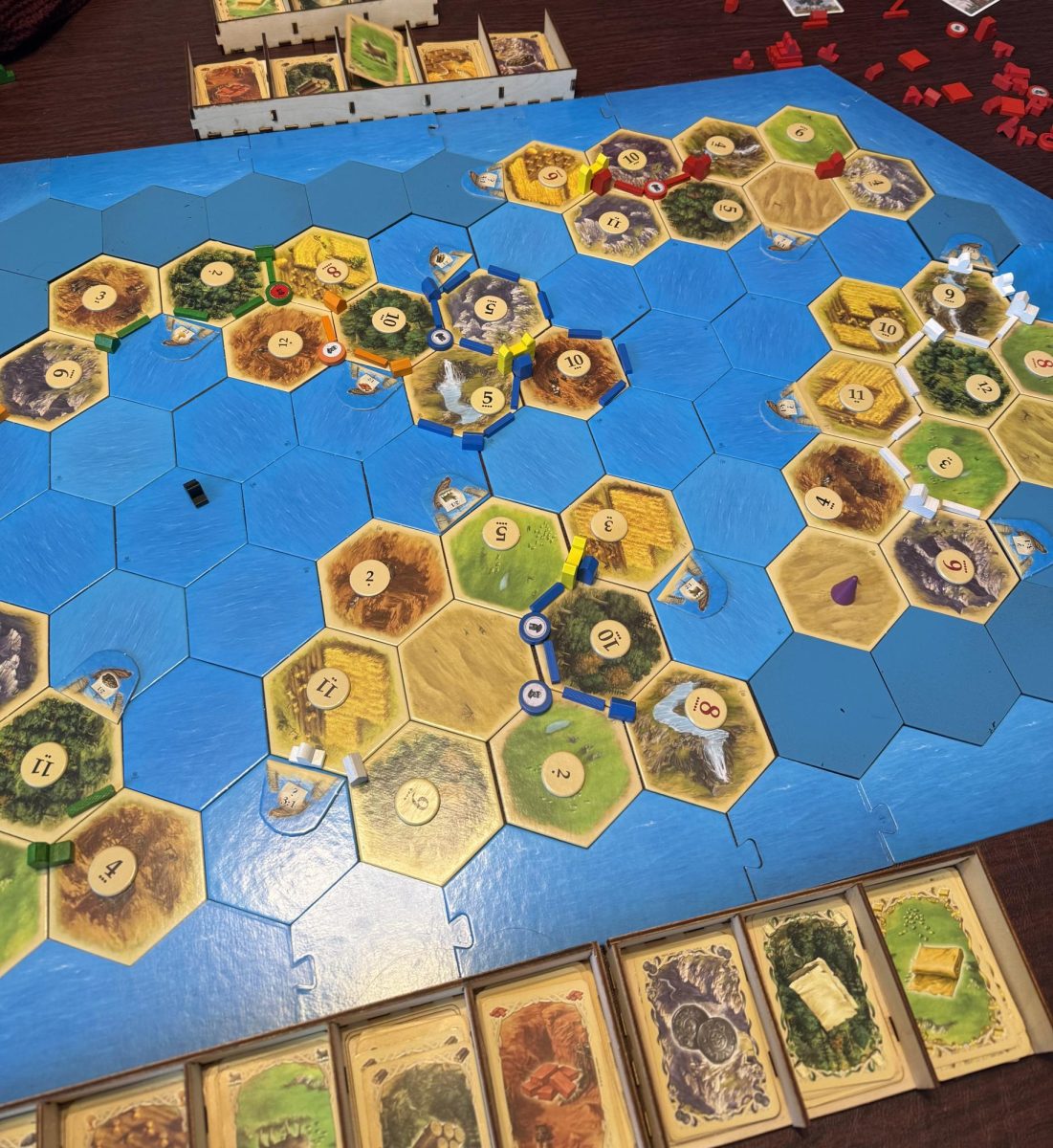Welcome to Catan, the game that disguises itself as friendly family fun but is actually a masterclass in human nature’s raw, unfiltered truths. Forget candy-colored dice games or cooperative feel-good nonsense. It’s Darwinism on cardboard. A crash course in why your ancestors conquered instead of collaborated.
Catan isn’t just any board game; it’s a life simulator. It’s where your dreams of peaceful coexistence dash faster than you can roll a seven. It’s a brutal crash course in resource scarcity, unchecked ambition, and why humanity keeps building empires, only to burn them to the ground.
The setup is deceptively simple. You’re plopped onto a hexagonal island divided into patches of resource-rich terrain: forests give you wood, pastures churn out sheep, mountains produce ore, fields grow wheat, and hills make brick. Each hex is stamped with a number from 2 to 12, and every time the dice land on that number, it rains resources for anyone lucky or strategic enough to own adjacent settlements.
In the beginning, everyone starts with dreams of equality. Settlements are spread out, trades are amicable, and you might even smile when someone else rolls your number. But as the game progresses, the mask slips. The true goal of Catan isn’t to build – it’s to dominate.
You’ll fight tooth and nail for resources. Forget ethics. Forget fairness. If you’re good at this game, you’ll learn fast that being “nice” gets you a one-way ticket to irrelevance.
The rules? Simple. Build settlements, upgrade them into cities, trade resources, and pave over your enemies’ hopes with roads. Lots of roads.
You don’t “build” roads and settlements – you carve them into the land like veins, channeling resources to your growing empire. Cities? They’re not just upgrades; they’re industrial revolutions in miniature, doubling your resource output and turning your meek little settlements into production juggernauts. And every card you draw, a development card, a sneaky monopoly or a devastating knight, becomes another tool in your arsenal, another step toward absolute control.
Let’s talk about the robber: A tiny black pawn, sure, but it’s the embodiment of all humanity’s worst impulses: greed, sabotage, vengeance. Roll a seven, and the tax collector comes. Suddenly, you’re not just managing resources; you’re wielding power. Drop the robber on someone’s prime hex, and you’re not just stealing their wheat – you’re gutting their economy. You’re a barbarian raiding the granaries of a once-thriving village. And it feels good.
The numbers on the hexes? They’re not just there for decoration – they’re a master class in probability. Sixes and eights are jackpot cities, while twos and twelves are the board’s arid wastelands. But even those dead zones can become goldmines with the right ports. Ports: the great equalizers. Trade two sheep for one ore or three bricks for one wheat, and suddenly, you’re not just playing the game – you’re rigging it in your favor.
The beauty of Catan is in its balance. Every choice is a gamble. Build a road here, and you might cut off your opponent’s expansion. Build it there, and you secure your monopoly. But the dice are cruel gods, and no amount of planning can save you from the existential crisis of rolling three fours in a row while your opponent milks their rights for all they’re worth.
And trades? Trades are where the game gets truly savage. You don’t just barter; you manipulate. You dangle that precious ore like a carrot, convincing your opponent to give up two wheat and a sheep. And just when they think you’re their ally, you use that ore to build a city that blocks their road to victory. It’s not personal; it’s business – ruthless, cutthroat business.
Victory in Catan isn’t just about racking up ten points. It’s about proving you’re the smartest person in the room. Longest Road? That’s your empire stretching across the horizon. Largest Army? That’s your declaration.
But the goal? Dominance. Absolute. Unquestioned. You don’t win Catan, you conquer it. Imperialism isn’t an afterthought; it’s the only thought. The person who grabs the most land, gobbles up the most resources, and monopolizes the board? They’re not just victorious; they’re a walking, talking metaphor for the entire history of civilization.
See, Catan isn’t about rolling dice and making deals. It’s about survival of the fittest. You don’t just need sheep; you need all the sheep. You need to leave your opponents staring at their pathetic little pastures, wondering where they went wrong. You don’t just trade, you manipulate. You barter your wheat for their trust, then stab them in the back with a brick.
It’s brilliant, really. Catan isn’t a game; it’s a mirror. A reminder that humans didn’t evolve to share. We evolved to win. The same primal instincts that made kingdoms rise and fall are the ones that make you hoard ore like it’s gold and scream bloody murder when someone cuts off your road to Longest Path glory.
So, is Catan the best board game ever? Absolutely. It’s Monopoly with brains, Risk without the tedium, a sociology class disguised as a Saturday night activity. Hate it? Cry about it. Love it? Then you already know: life’s a game, and the ones who know how to play it, can win.



















